Eco-friendly, smart & high-tech
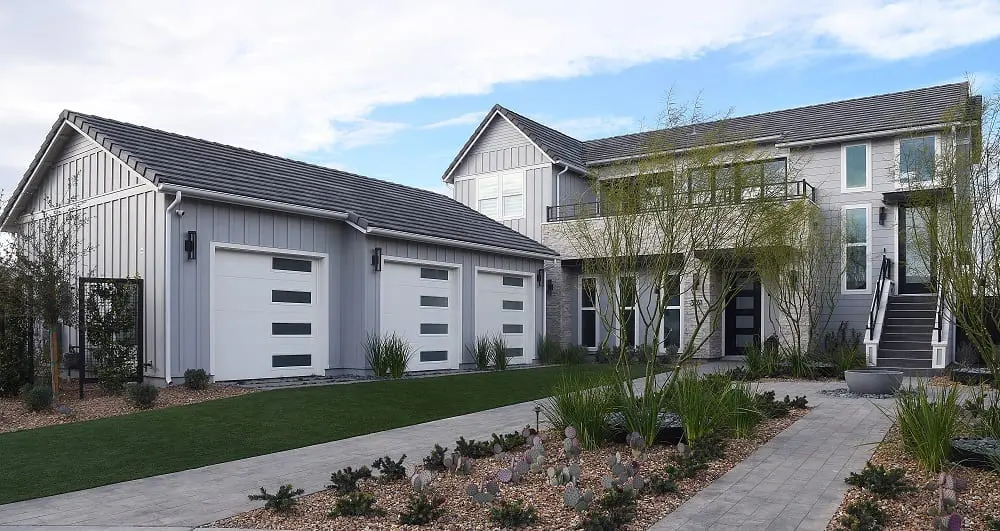
(Photo courtesy of KB Home.)
If you’ve ever wondered where tomorrow lives, you can find it this year in Las Vegas from KB Home.
“Where tomorrow lives” is more than a catchphrase when applied to the ProjeKt Home, KB Home’s most recent concept house located in Inspirada, a master planned community in Las Vegas.
From the outside, the 3,200-square-foot residence appears as a modern take on transitional architecture. The pitched roof on the two-story structure is a gentle reminder of farmhouse style.
But open the front door and you immediately know this is no ordinary house. Lights mimicking sunlight keyed to the time of day turn on; window shades rise. The overall design sense is streamlined with contemporary features softened by natural materials.
More than architecture and design generate attention for this home. Instead, it offers a peek into the way we will live in the not too distant future.
The design is forward-looking, but it’s the ways in which sustainability, technology, wellness and flexibility — which Jacob Atalla, vice president of sustainability for KB Home, characterizes as the four pillars of the design — mesh to create an unprecedented experience. Rather than simply offering shelter, the home interacts and reacts to the indoor environment, almost becoming a partner with the people living there.
Concept homes build on innovations showcased in prior demonstration models and point the way to what might be possible in the near future — not just for costly, one-of-a-kind homes but also for the entire market including production homes. “We continue to look at how things leapfrog over the years,” Atalla says.
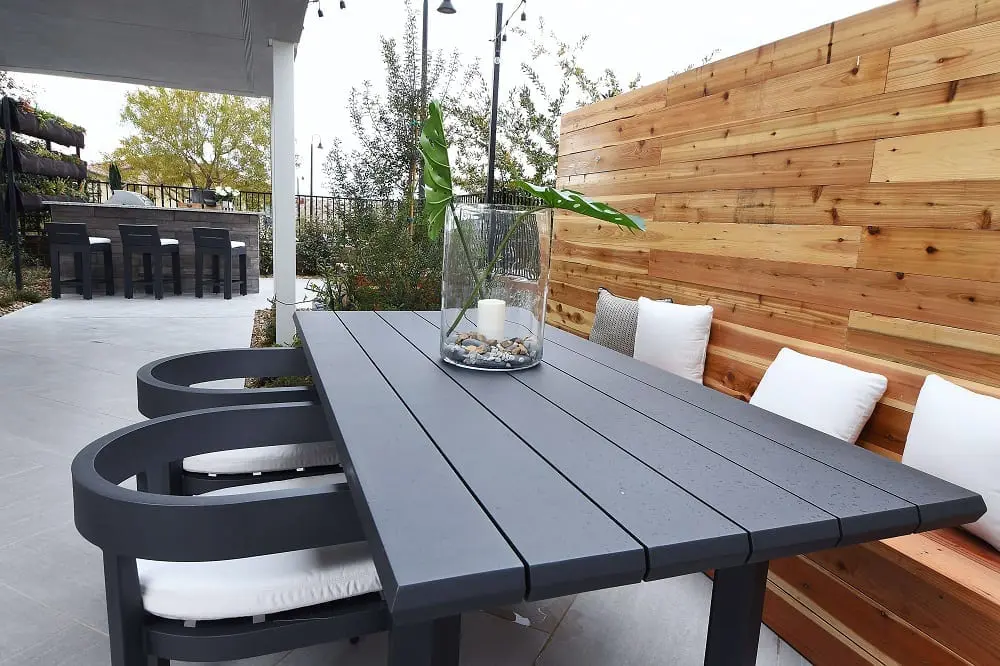
(Photo courtesy of KB Home)
Using Smart Home Technology to Boost Wellness
KB Home ProjeKt builds on previous concept homes to push energy efficiency beyond net-zero. Two Tesla Powerwall batteries store the energy gained during the day by the solar power system. The home was built in a factory using advanced manufacturing techniques such as cutting-edge building information modeling and materials and technologies from Europe that are new to the U.S. construction industry. The house achieved a zero rating on the HERS Index.
Rather than simply an amenity to be added, wellness was central to design, engineering and construction decisions. Delos, a pioneer in wellness real estate, was a partner in the project. A central question in the design, says Atalla, was “how do we engage that home in partnering with the occupants to enhance their health and wellness or engage them in making the environment they live in better. We know that about 90 percent of our lives is spent indoors, and a lot of indoor living time is in your own home.”
Nine sensors constantly sample the air in the home, while the DARWIN™ Home Wellness Intelligence Network, a first-of-its-kind system created by Delos, passively monitors and constantly responds to real-time changing environmental conditions within the home.
“DARWIN is always taking care of the resident, delivering fresh outside air while purifying indoor air quality conditions, as well as purified water at every fixture within the home,” Atalla says. The home also can alert residents to water leaks or changes in the system, and residents can turn off the water in the home using a phone or tablet.
“We’re exploring where tomorrow will be with sensors and also technology,” Atalla says. Dashboards give up-to-the-minute status reports on systems. The home has more than 250 separate IP addresses, and another goal for designers was to create an easy-to-use interface for residents to interact with a complex system. Google Home is the brains of the home and Google Assistant is an interface.
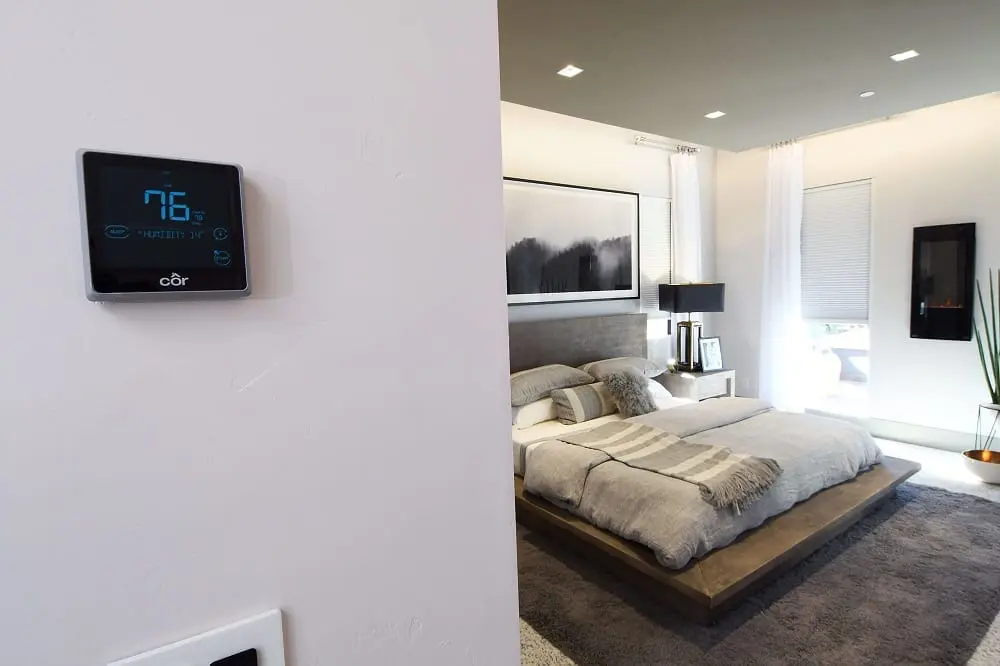
(Photo courtesy of KB Home)
Another feature contributing to the health of residents is lighting keyed to circadian rhythms. DARWIN constantly adjusts lights to match the time of day.
But residents can also control the lighting, which means even if the alarm goes off at 4 a.m., the interior lights can match the energy of early morning sunlight. You can walk into the bathroom and just say “Google energize me” (or another preset command) to set the scene.
Hanley Wood, now known as Zonda, which provides data research to the design and construction industries, and KB Home have compiled an impressive amount of data connecting specific attributes of a dwelling with health benefits including sleep, and the bedrooms in this home are primed for slumber with room darkening shades and special noise damping drywall.
“Total quietness, total darkness and circadian rhythms help you sleep,” Atalla says.
Research from Hanley Wood shows homeowners believe housing is essential or extremely important to good health, and two-thirds say the right housing environment could cut annual medical costs by 40 percent.
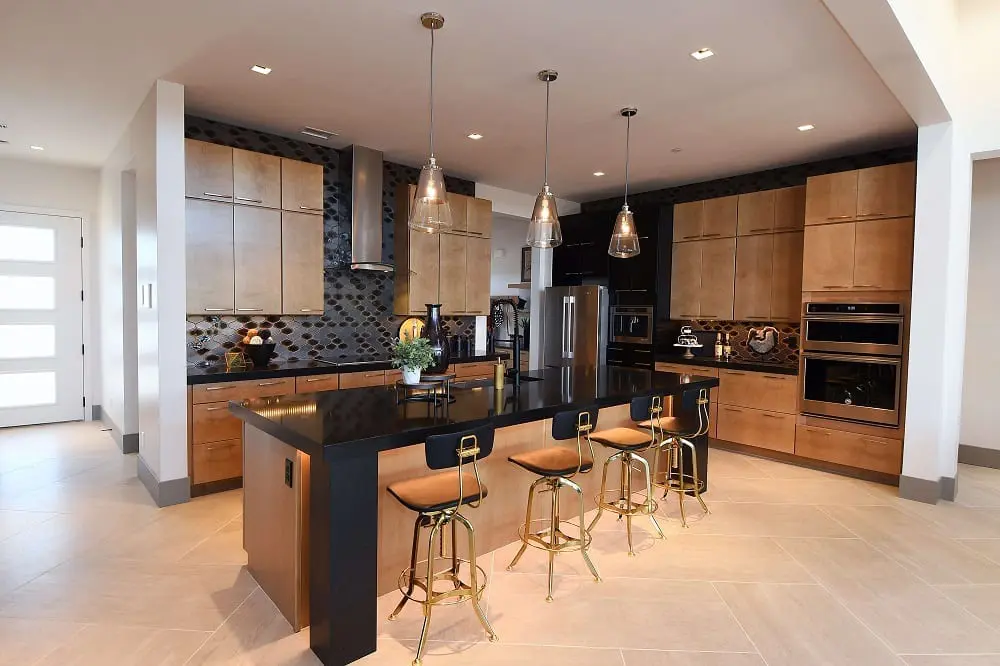
(Photo courtesy of KB Home)
Smart Rooms Designed for Functionality
The kitchen is another hub of wellness and technology with Whirlpool smart appliances. Working together, the appliances and Yummly app can examine the contents of the refrigerator, identify what recipes are possible and prepare the oven to cook the selected recipe. The home is also oriented to grow greens, herbs and other food items with a living garden wall.
Flexibility is another concept developers explored. With secondary bedrooms, a huge gathering space and a small galley kitchen on the second level, the home can accommodate guests, a live-in caretaker, extended family, or a growing family. A separate entrance also creates an option to use the space for an Airbnb or longer-term rental.
But the real magic for adapting spaces happens on the main floor, where a movable wall (at the press of a button) can carves out a portion of the great room to create a second room with desk space and a murphy bed.
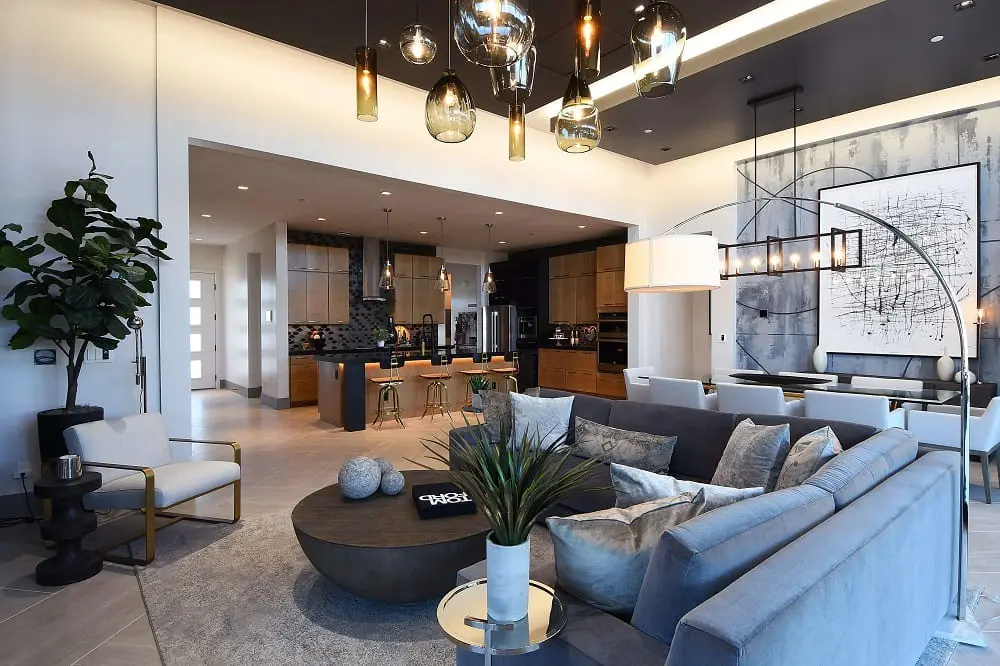
(Photo courtesy of KB Home)
“The home is designed to be flexible in a variety of ways in any given day, from family time to working at home to entertaining. It actually collaborates with you, making your life more efficient and reducing stress. It is also designed to be flexible for the long term as family structures and needs change,” explains Paul Tourbaf, president of Hanley Wood’s residential construction group.
Homes are always changing. If KB Home ProjeKt is any indication, the future will be defined not by where we live but by how we live.
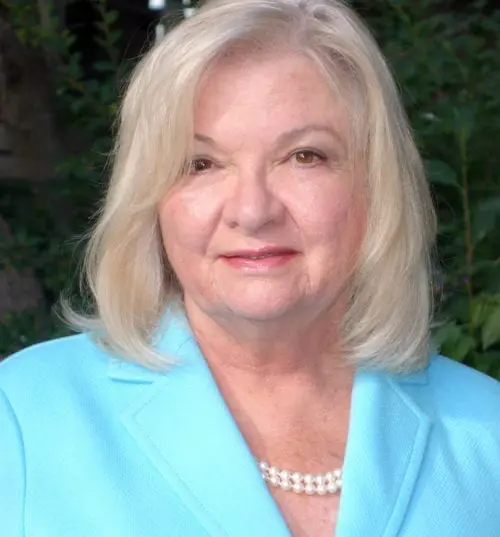
Camilla McLaughlin is an award-winning writer specializing in house and home. Her work has appeared in leading online and print publications, such as Yahoo! Real Estate, Unique Homes magazine and Realtor magazine. She has also freelanced for the Associated Press.
 The 10 Best Places to Retire in Tennessee in 2023
The 10 Best Places to Retire in Tennessee in 2023